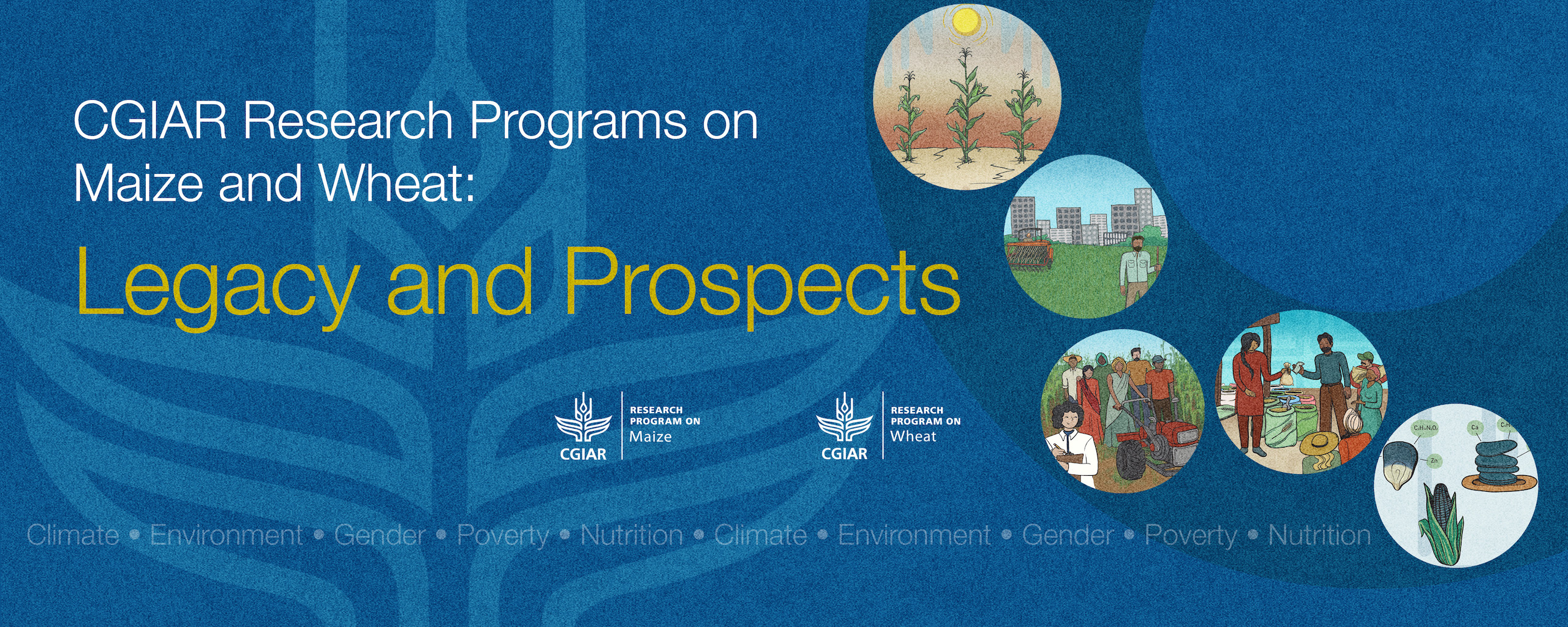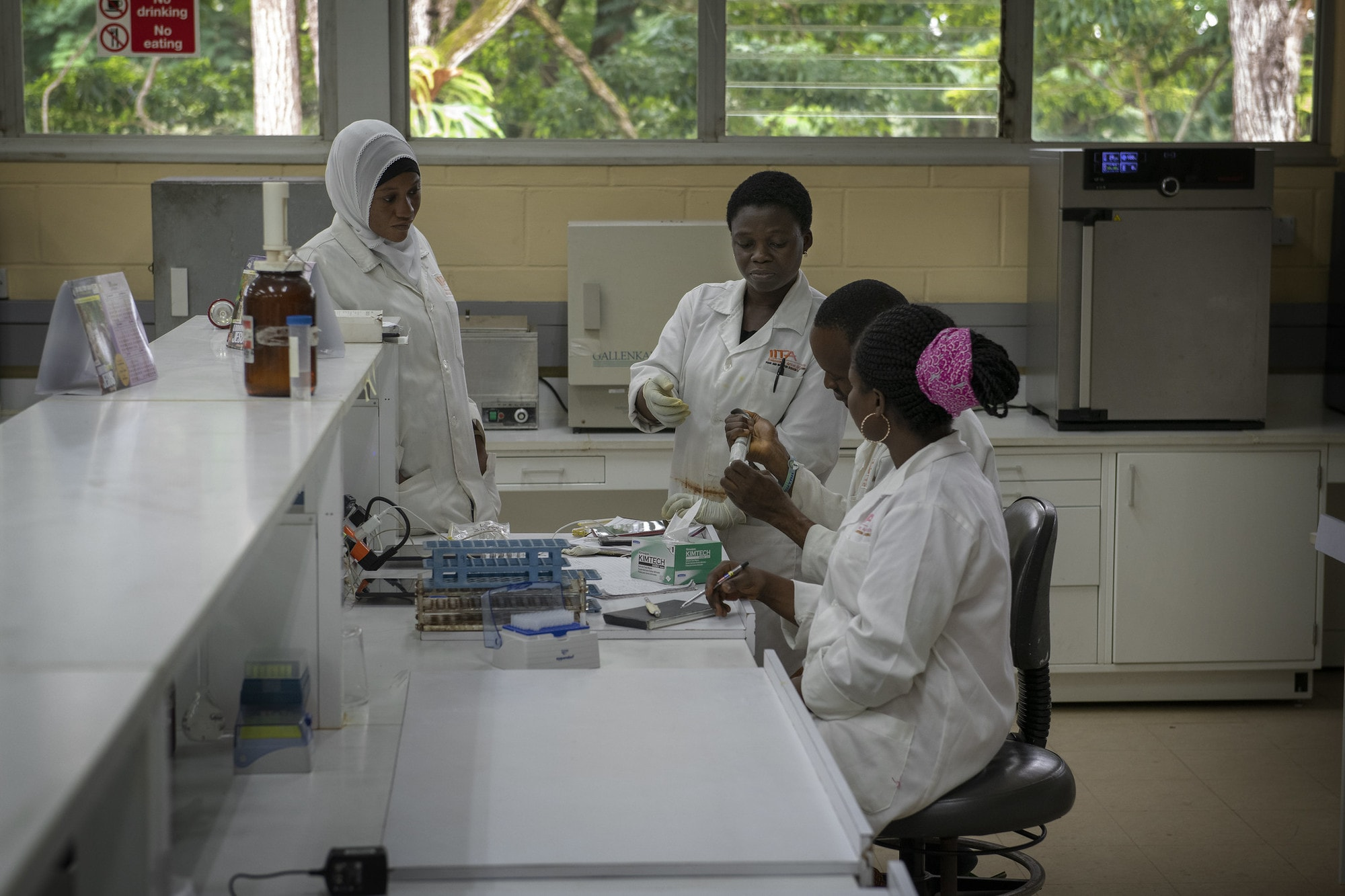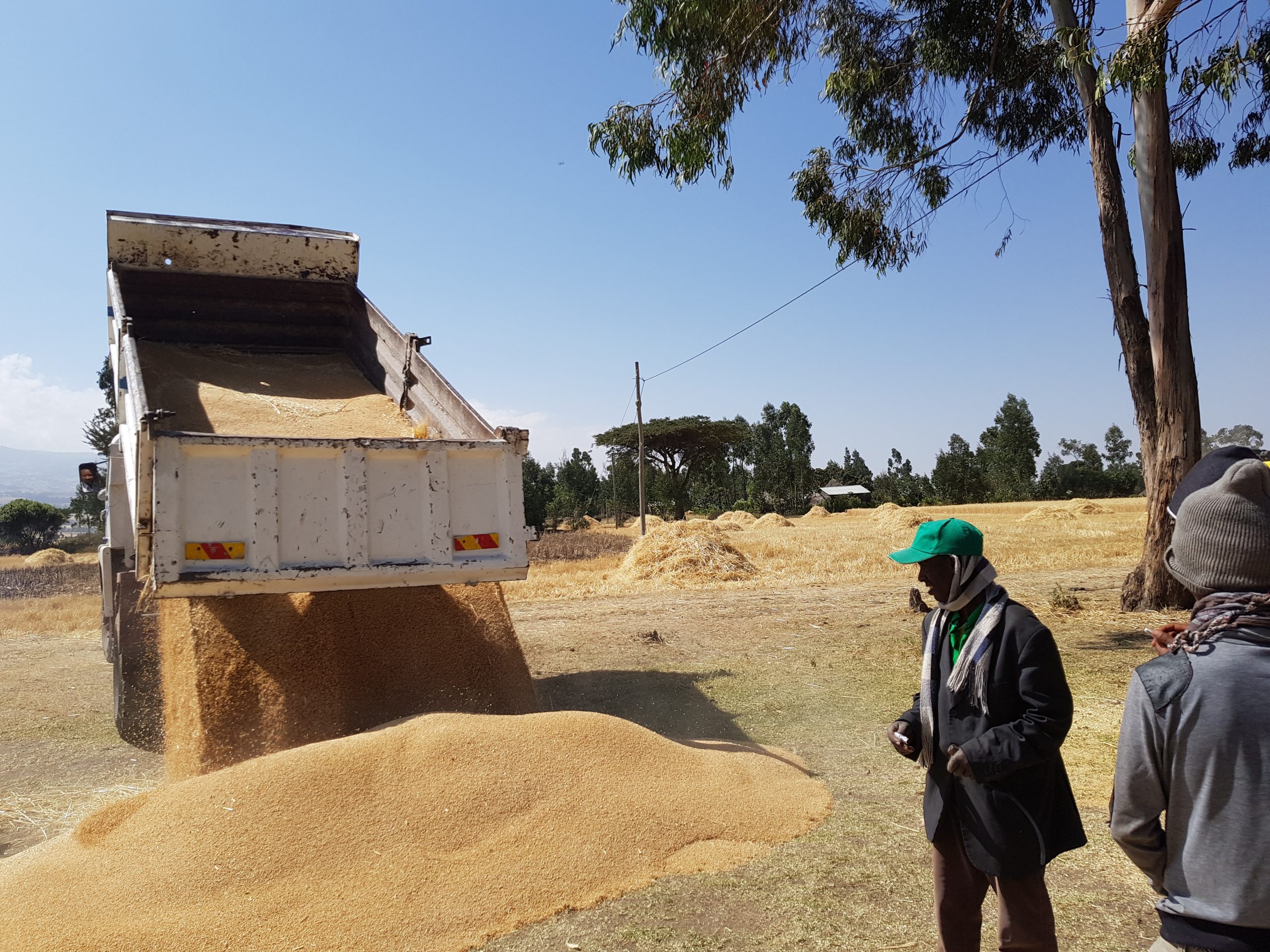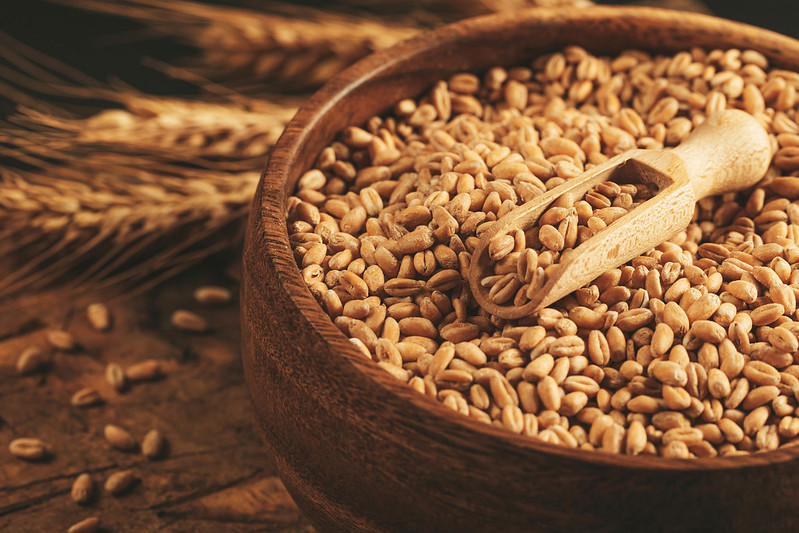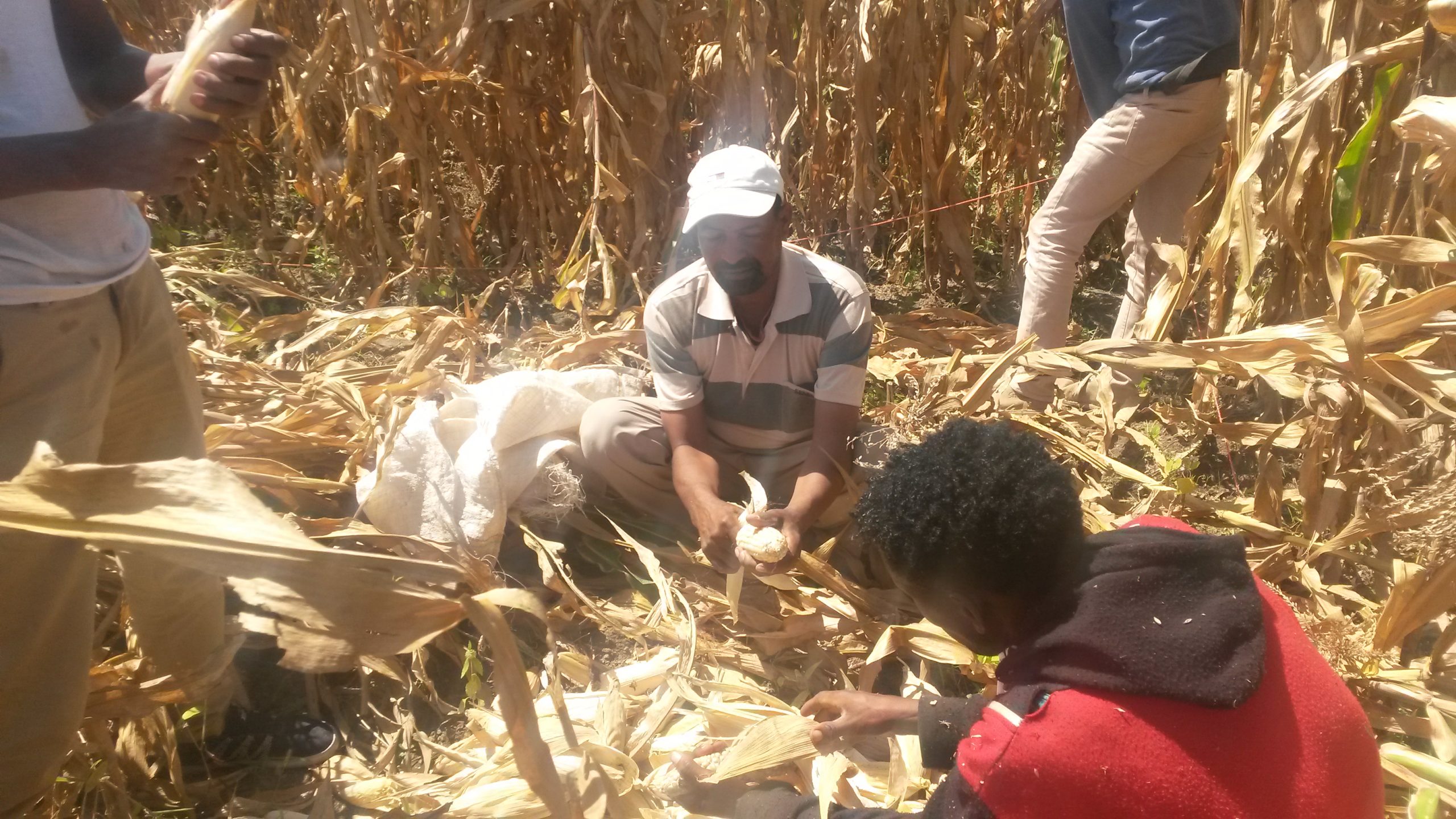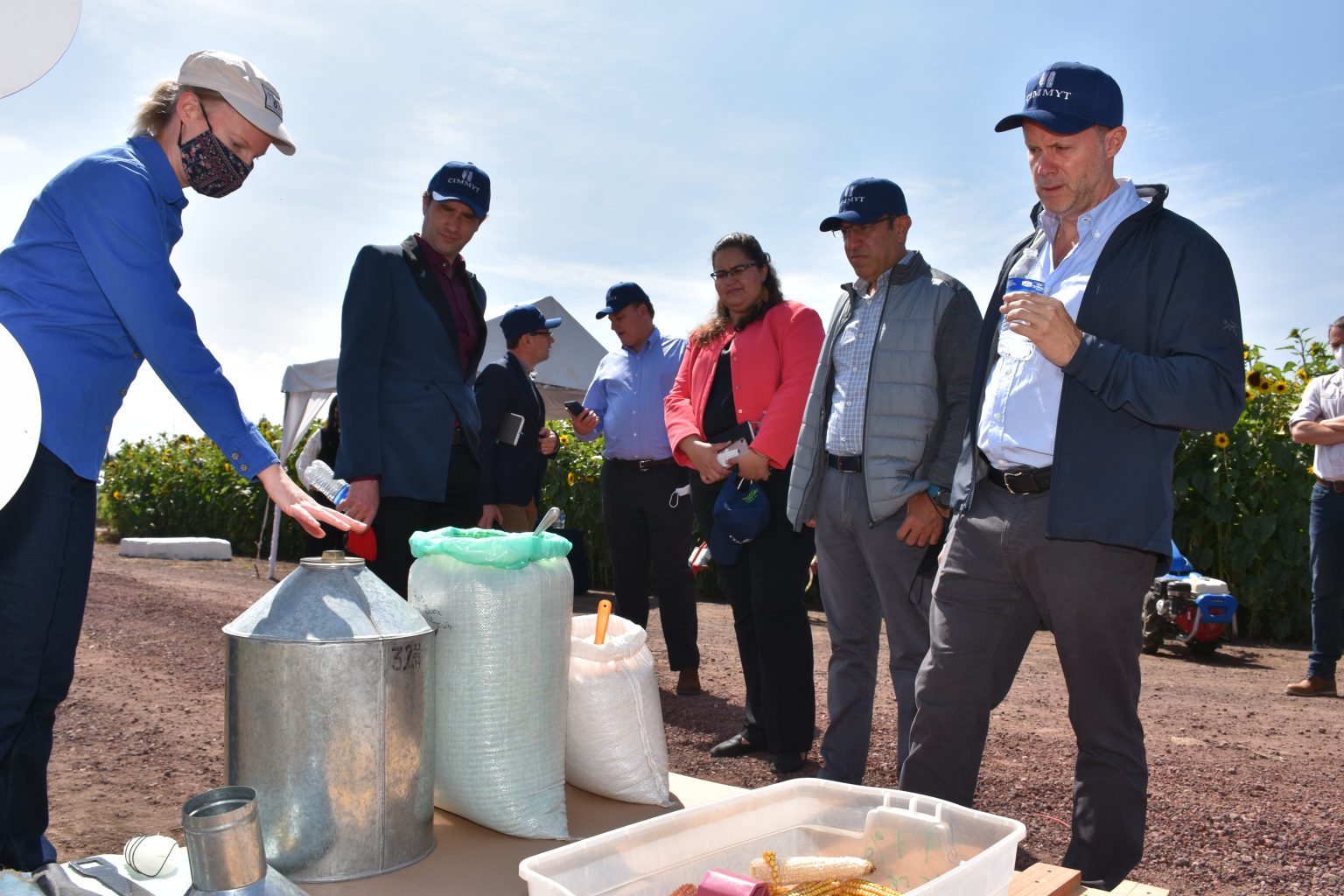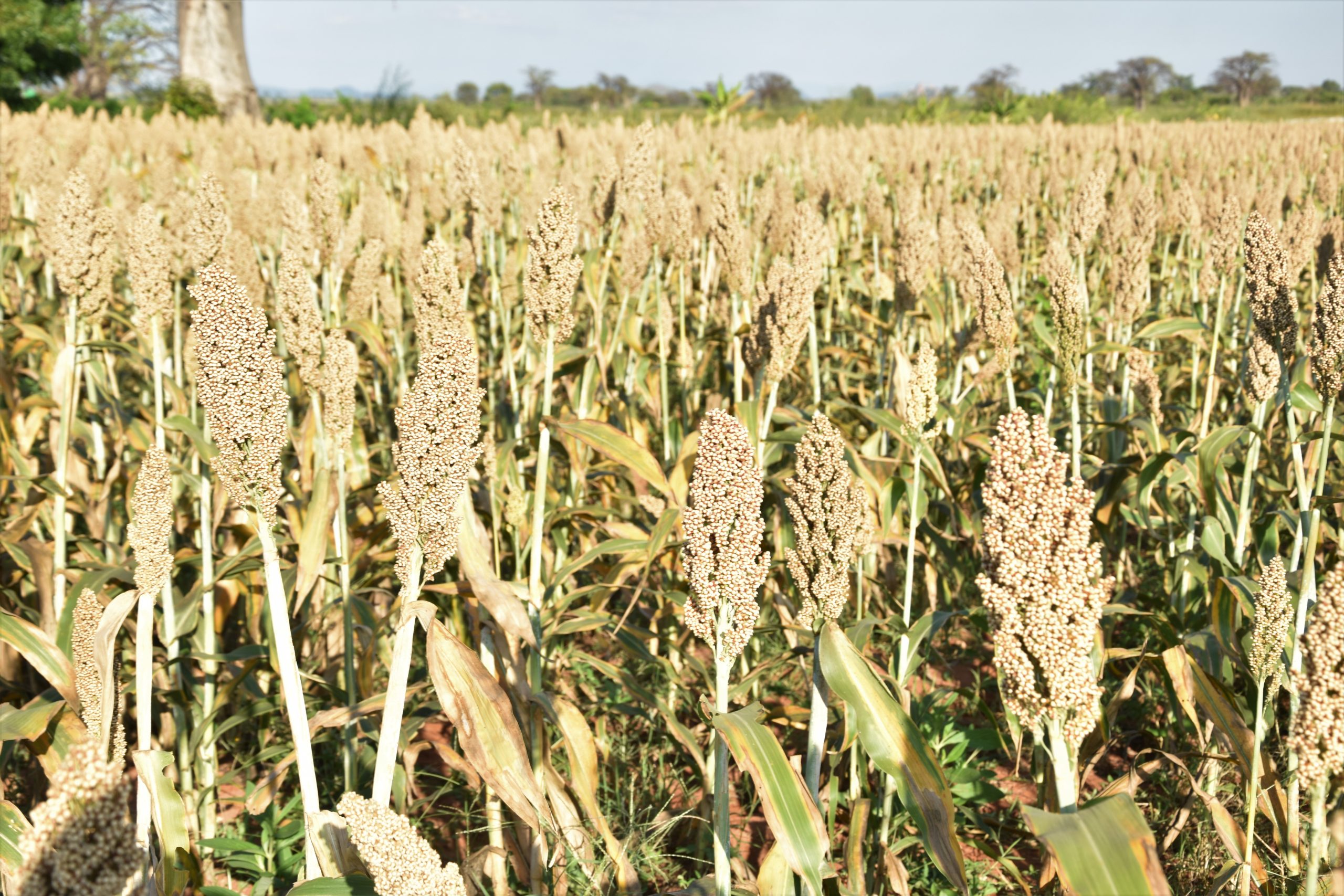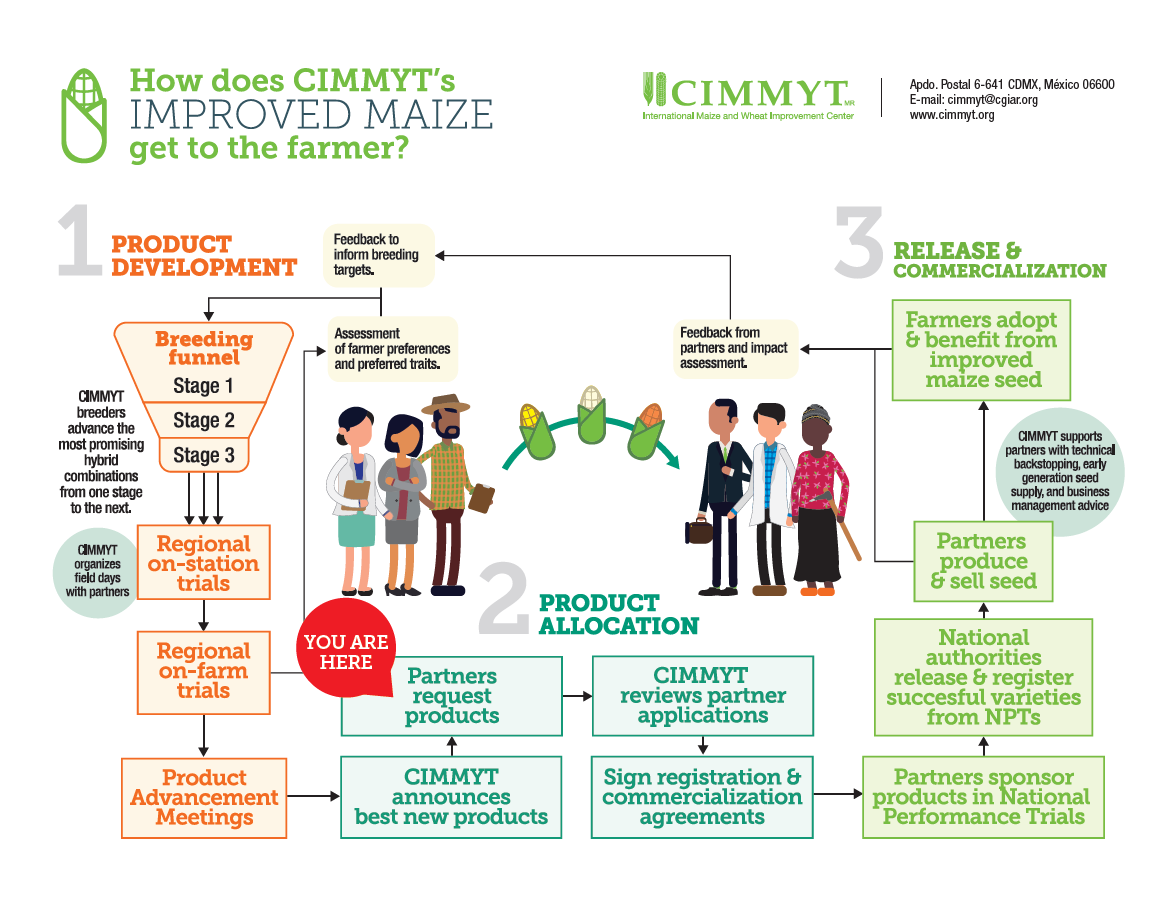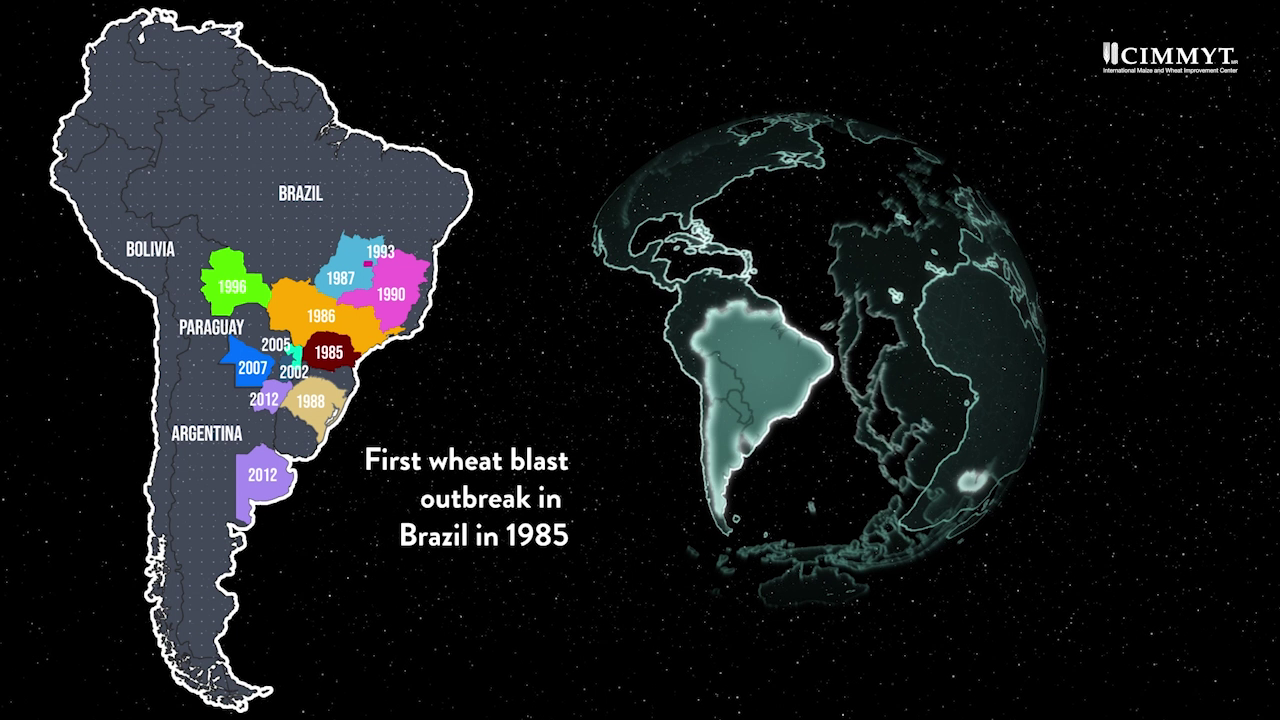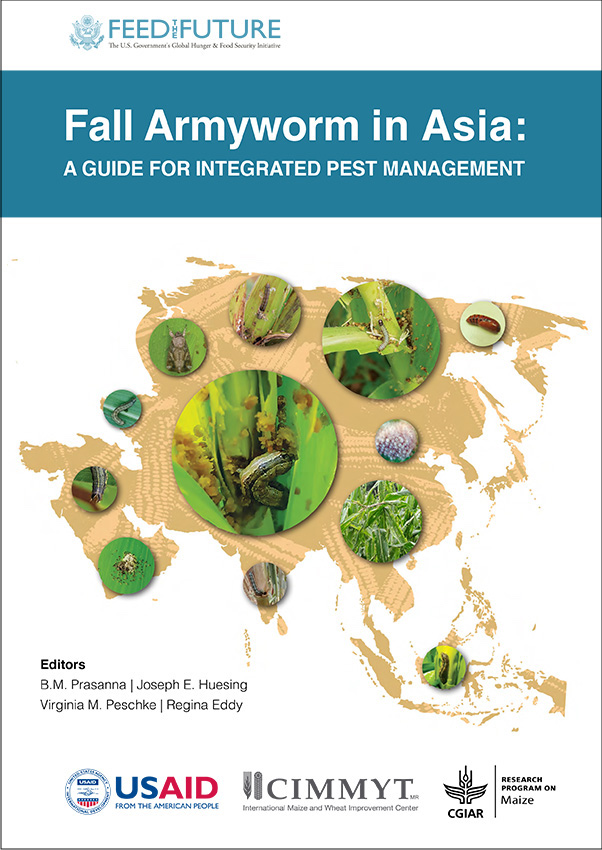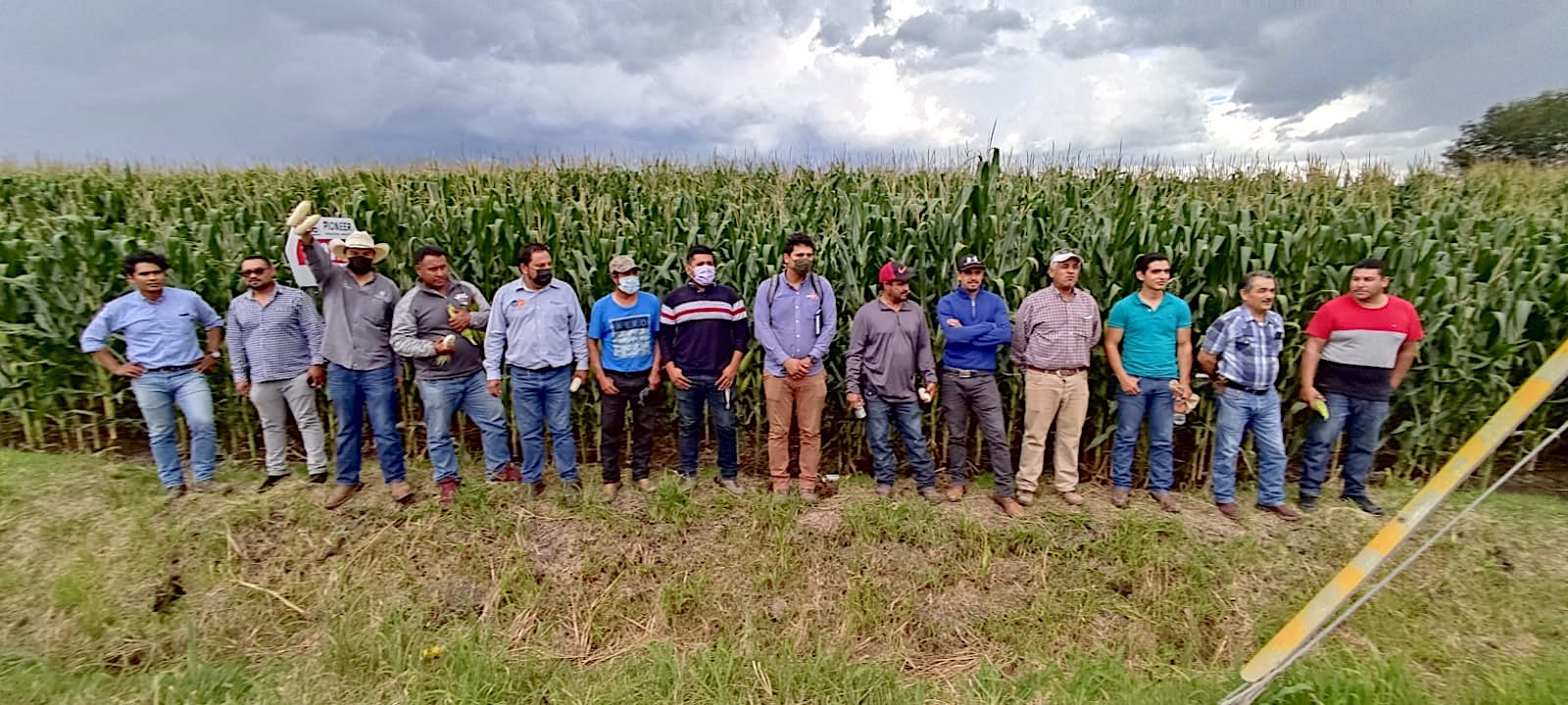Nutrition, health and food security
As staple foods, maize and wheat provide vital nutrients and health benefits, making up close to two-thirds of the world’s food energy intake, and contributing 55 to 70 percent of the total calories in the diets of people living in developing countries, according to the U.N. Food and Agriculture Organization. CIMMYT scientists tackle food insecurity through improved nutrient-rich, high-yielding varieties and sustainable agronomic practices, ensuring that those who most depend on agriculture have enough to make a living and feed their families. The U.N. projects that the global population will increase to more than 9 billion people by 2050, which means that the successes and failures of wheat and maize farmers will continue to have a crucial impact on food security. Findings by the Intergovernmental Panel on Climate Change, which show heat waves could occur more often and mean global surface temperatures could rise by up to 5 degrees Celsius throughout the century, indicate that increasing yield alone will be insufficient to meet future demand for food.
Achieving widespread food and nutritional security for the world’s poorest people is more complex than simply boosting production. Biofortification of maize and wheat helps increase the vitamins and minerals in these key crops. CIMMYT helps families grow and eat provitamin A enriched maize, zinc-enhanced maize and wheat varieties, and quality protein maize. CIMMYT also works on improving food health and safety, by reducing mycotoxin levels in the global food chain. Mycotoxins are produced by fungi that colonize in food crops, and cause health problems or even death in humans or animals. Worldwide, CIMMYT helps train food processors to reduce fungal contamination in maize, and promotes affordable technologies and training to detect mycotoxins and reduce exposure.
A decade of world-leading maize and wheat research
 Capacity development
Capacity development
Legacy websites and photo exhibition mark the closing of the CGIAR Research Programs on Maize and Wheat, and their impact on sustainable agricultural development.
Harnessing the power of science to reduce poverty and malnutrition
 Nutrition, health and food security
Nutrition, health and food security
Throwing money at the problem won’t solve world hunger
 Nutrition, health and food security
Nutrition, health and food security
Source: The Washington Post (22 Nov 2021)
Harvard Professor Gabriela Soto Laveaga stresses the importance of tackling hunger as more than a technical problem to be addressed through scientific advancement alone, praising CGIAR for its community-centered approach to food systems amid the climate crisis.
Is a pluralistic seeds system a pathway to seed security in Ethiopia?
 Nutrition, health and food security
Nutrition, health and food security
Efforts to support inclusive and equitable access to seeds by farmers should recognize the different seed systems and the complementarity of formal and informal seed systems.
Cereals research for sustainable health and well-being
 Nutrition, health and food security
Nutrition, health and food security
The current focus in nutritional circles on micronutrient malnutrition and unhealthy eating habits has raised questions about continuing to invest in research on energy-rich cereal crops and related farming systems.
Decomposing maize yield gaps to better inform policy and public investments
 Capacity development
Capacity development
Scientists from Wageningen University and CIMMYT documents the magnitude, patterns, and drivers of yield gaps in sub-Saharan Africa.
World-class laboratories and research fields to the service of Mexico and the world
 Innovations
Innovations
Representatives of the Carlos Slim Foundation and Mexico’s National Agriculture Council (CNA) agree on the importance of collaboration between the public and private sectors, civil society and research organizations like CIMMYT.
Adaptation, Demonstration and Piloting of Wheat Technologies for Irrigated Lowlands of Ethiopia (ADAPT-Wheat)
 Climate adaptation and mitigation
Climate adaptation and mitigation
World Food Day 2021: The future of food is in our hands
 Climate adaptation and mitigation
Climate adaptation and mitigation
Sustainable agri-food systems lead to better production, better nutrition, a better environment and a better life for all.
New CIMMYT maize hybrids available from Southern Africa breeding program
 Innovations
Innovations
CIMMYT is offering a new set of improved maize hybrids to partners, to scale up production for farmers in the region.
Taming wheat blast
 Environmental health and biodiversity
Environmental health and biodiversity
Researchers point out the future of the disease, the ways to manage it and prevent it from spreading — within and across continents.
The UN Food Systems Summit has arrived
 Nutrition, health and food security
Nutrition, health and food security
CIMMYT and CGIAR contributions to the SDGs highlighted in new campaign.
A new tool to strengthen the fight against fall armyworm in Asia
 Capacity development
Capacity development
CIMMYT, USAID and partners announce the publication of a guide for integrated pest management of fall armyworm in Asia.
CIMMYT becomes partner of choice in PepsiCo and Grupo Trimex’s sustainability strategy
 Environmental health and biodiversity
Environmental health and biodiversity
The food and beverage company will source wheat produced sustainably from a milling company that buys grain from farmers in the Bajío region of Mexico who will participate in CIMMYT’s research and capacity building networks.
